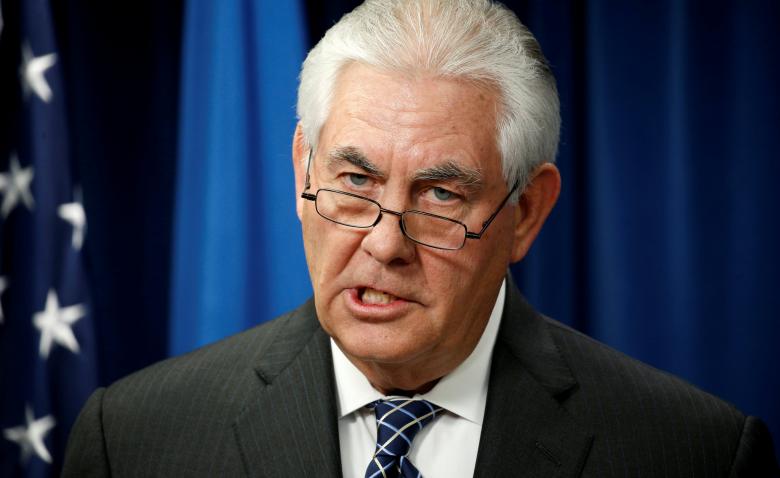US Secretary of State Rex Tillerson announced on Thursday that Washington will take its time in reviewing its climate change policy in wake of Arctic nation’s renewed calls for the world to address climate warming.
Tillerson announced that the United States will not rush to make a decision on its policies.
He spoke Thursday in Fairbanks, Alaska, at a meeting of the Arctic Council, an advisory group made up of the eight Arctic nations and indigenous groups.
The council adopted a nine-page “Fairbanks Declaration 2017,” which noted that the Arctic is warming at more than twice the rate of the global average. The document noted the importance of reducing soot and methane emissions and said climate change is the most serious threat to Arctic biodiversity.
Tillerson signed the document. But in opening remarks, he cautioned that the United States is reviewing several important policies, including how the Trump administration will approach the issue of climate change.
“We are appreciative that each of you has an important point of view, and you should know that we are taking the time to understand your concerns,” Tillerson told other representatives on the council.
“We’re not going to rush to make a decision. We’re going to work to make the right decision for the United States.”
The Arctic Council, he said, will continue to be an important platform as the Trump administration deliberates.
Trump has said little about Arctic policy, but he has taken steps to put US Arctic Ocean waters back in play for petroleum drilling.
The Arctic Council’s goals are sustainable development and environmental protection of the Arctic. The council does not make policy or allocate resources, and its decisions must be unanimous. The United States, an Arctic country because of the state of Alaska, is joined on the council by Canada, Russia, Denmark, Finland, Iceland, Norway and Sweden.
The Arctic is warming at a faster pace than any other part of the world, forcing native villagers on coasts and rivers in the region to move to higher ground as permafrost and glaciers melt and seas rise. Global warming also puts stress on wildlife such as walruses and polar bears as they lose their habitat areas.
Tillerson’s signing of the document surprised a source close to the State Department. “We’d heard … that there would likely be a significant US effort to redline or even remove entirely the Paris and climate language,” said the source, who spoke on condition of anonymity due to the sensitive nature of the talks.
It was unclear how much influence the Arctic agreement would influence Trump’s decision on withdrawing from the Paris deal. He is expected to make a decision on Paris after a Group of Seven summit at the end of May.
Arctic warming is thawing permafrost and melting sea ice, causing damage to infrastructure but also opening up new oil reserves, shipping routes and access to fisheries – intensifying a decades-long race for Arctic resources.
